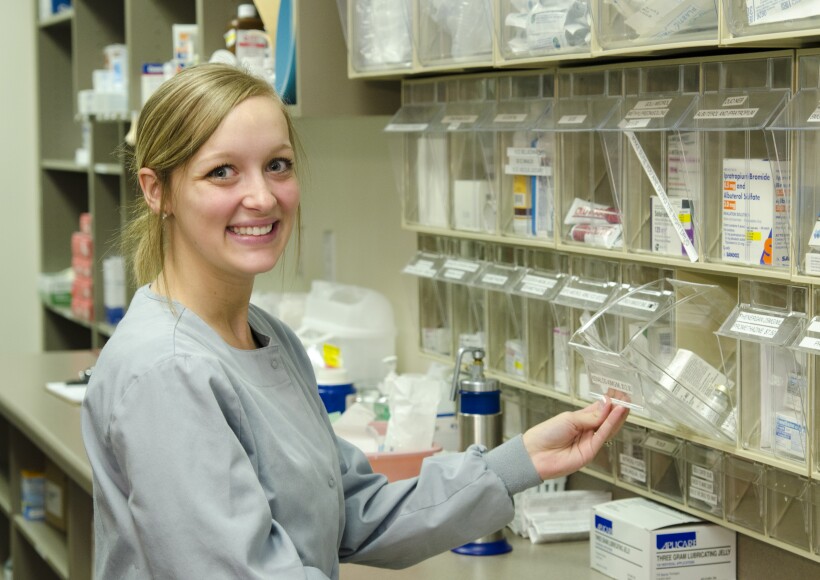Course Sequence
Every class in the Public Health program prepares you to plan and implement changes in the health of thousands of people around you. You will be ready to help people make better choices in their wellness, identify causes of disease, encourage policy makers to improve their cities and states or teach families to live a healthier life. This is Public Health!
Recommended Course Sequence
Bachelor of Science Degree with a Major in Public Health
You make take these courses in any order you wish, but here is a recommended sequence to help you graduate in four years.
Check out the Public Health course catalog page to get an idea of the classes that you will be taking for this major.
Visit I-Plan, BYU-I's new online tool for academic planning, to select a major and create your grad plan.
Course Catalog I-Plan

Recommended Course Sequence
Bachelor of Science Degree with a Major in Public Health
You make take these courses in any order you wish, but here is a recommended sequence to help you graduate in four years.
Check out the Public Health course catalog page to get an idea of the classes that you will be taking for this major.
Visit I-Plan, BYU-I's new online tool for academic planning, to select a major and create your grad plan.
Course Catalog I-Plan
Federal Public Health Jobs
State Public Health Jobs
Governmental Organizations
Occupational Safety and Health Jobs
General Public Health Jobs
Worksite Jobs
Certified Health Education Specialist (CHES)
Certification indicates your professionalism and dedication to your profession as well as a basic level of competence. One of the certifications you will be eligible for when you finish your degree (90 days before you graduate is when you become eligible), is the Certified Health Education Specialist offered by www.NCHEC.org. CHES certification can also give you a "leg up" on your employment competition.
Certified Health Education Specialists are competent in the 7 areas of responsibility which include:
1. Assess the needs, resources, and capacity for health education/promotion
2. Plan health education/promotion
3. Implement health education/promotion
4. Conduct evaluation and research related to health education/promotion
5. Administer and manage health education/promotion
6. Serve as a health education/promotion resource person
7. Communicate, promote, and advocate for health, health education/promotion, and the profession
To take the CHES exam you must:
1. Have 25 college credits in health education related content. You do NOT have to take ALL of the following courses, but these courses meet the CHES standards and will help you prepare for the exam:
- HS 240 - Introduction to Community Health
- HS 310 - Environmental Health
- HS 320 - Communicable and Non-Communicable Diseases
- HS 351 - Gerontology
- HS 370 - Epidemiology
- HS 390 - Program Planning/Implementation
- HS 391 - Research Methods and Program Evaluation
- HS 401 - Community Health Methods
- HS 420 - Health Behavior Theories and Models
- HS 430 - School Health Programs
- HS 460 - Drugs of Use and Abuse
- HS 472 - Health Communications
- HS 480 - International Health
2. Apply to take the exam at www.nchec.org
3. Pay the exam fee. As a student, you get a discount on the exam. The exam is a little more than $200.00, but compared to the cost of your overall education this is a small fee.
4. Prepare for the exam. NCHEC has study materials you can purchase. You can also study from some of your text books, namely the HS 390 text.

Internships
It is never to soon to be thinking about an internship. Network, ask questions, and research. The more exposure you have to various settings and populations, the easier it will be to decide where you will want that capstone experience.
For more general information about internships, visit the internship office site:
- Remember!!! Your personal network is your most valuable tool. Ask friends, relatives and others you know if they are aware of any internship opportunities in the public health field.
- Contact the agencies you are MOST interested in working for. If you would like to work with the Centers for Disease Control, then contact them (or look up internship information on their website) and investigate opportunities. Most agencies are willing to work with your through a formal or informal process.
- Set up a meeting with the peer mentors and discuss what other students have done. You can find their information above on the left. Also ask your friends, or subscribe to the Facebook alumni page.
- You can take advantage of the opportunity to complete an internship, it just takes some time and effort.
- In addition to the standard requirements for internships, our international students must receive approval from the International Office as well. Without their approval they will not be authorized to register for the class which is what triggers the International Office to generate a CPT for the student so that they may work legally in the United States.
- International students who do not receive approval from the International Student office before starting to work at an internship will lose their international student visa.

Graduate School
Public Health majors may choose to go to graduate school. There are many subspecialties in the field of public health. If you are interested in pursuing additional schooling or more advancement/financial opportunity then graduate school may be of interest to you.
You can earn a graduate certificate, a master degree, or a doctorate degree in public health. Masters in Public Health degrees are awarded from universities and programs that are accredited by the Council on Education for Public Health (www.ceph.org).
Explore the many options you have at CEPH.org and also talk to your faculty mentor for additional guidance.